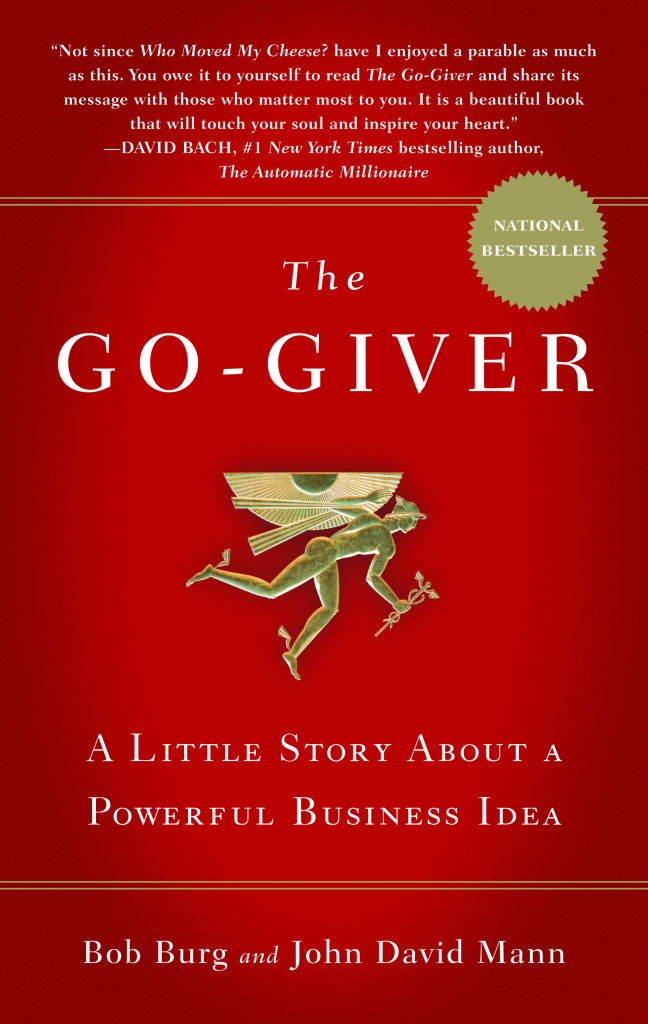Guest Article by Bob Burg – Coauthor (with John David Mann) of the national bestseller, The Go-Giver
In any relationship — business or personal — I believe empathy is the key differentiator between the successful and less successful person. Those who have the talent and skill; both at having empathy and being able to communicate it to others are at a huge advantage over those who don’t.
Not only is empathy a vitally important part of the sales and leadership process; it is also a vitally important part of the human process. This is true whether trying to understand why someone is resistant to our viewpoint or if we are simply attempting to help them through an issue or difficult time.
What does this word really mean?
Dictionary.com defines empathy as “the intellectual identification with or vicarious experiencing of the feelings, thoughts, or attitudes of another.” It’s tempting to simplify that into the oft-stated summation that it’s really nothing more than putting yourself into the other person’s shoes. In other words, understanding how they feel.
The challenge with that, however, is that most of us have different-sized feet! In other words, we come from diverse experiences, different ways of seeing the world, unique worldviews that don’t necessarily allow us to understand.
Indeed, if we have similarities in experience, we might actually be able to truly identify with them; to know; to actually understand what and/or how they are feeling. When that’s the case, then by all means, communicate that understanding to them. It’ll make them feel better just to know they are understood, and that someone cares enough to let them know that.
And, If You Don’t?
But, what if that is not the case? Let’s face it; there are times when not only do we not know exactly how the other person feels…we have absolutely no idea how they feel!
Yet, we can still be empathetic. You see, empathy doesn’t necessarily mean you actually feel what the other person feels. The truth is, you might not. How can you fully understand what you’ve never actually experienced or even been exposed to?
However, you can still display empathy by communicating that you understand they are feeling … something. And, that that something is uncomfortable or in some way distressful. You can communicate that you want to be there with them to help them work through it in any way you can, even if that means simply listening to and being there for them.
When someone with empathy listens…the other person feels heard. And feeling heard is what often makes the difference.
Tapping into Our Sense of Empathy
In a Facebook discussion on this topic, I suggested that I even think we can feel (or at least identify with) a similar emotion even if we don’t know exactly what/how they are feeling, and that’s what communicates to them that we care.
In response, Pastor Tom Sims wrote,
“There is always something inside of us, some memory of personal pain or struggle that unites us in a common humanity and enables us to relate in compassion.”
WOW!
And, if that wasn’t a terrific enough thought, Pamela McBride followed that up by saying,
“Compassion is only a heart beat away when we tap into our own struggles.”
Indeed!
GE Healthcare Field Engineer Shawn Bailey did this beautifully when — rather than just emotionlessly fixing a CT Scan machine he was called in to repair that would be used to help diagnose a frightened little four-year old patient — he first stopped at the hospital gift shop and bought a teddy bear to present to her.
He did this in order to calm and assure her that everything would be okay. Not only did it calm her, but her parents and the nurses and technicians on-hand.
Reportedly, the little girl held onto the teddy bear the entire time and it helped her deal with the situation immeasurably.
Shawn Bailey didn’t just have empathy…he communicated that empathy!
By all means, having empathy is a great start. It’s just not enough.
Communicating that empathy is what makes the difference. A major difference.
Bob Burg – The Go-Giver
Bob Burg is coauthor (with John David Mann) of the national bestseller, The Go-Giver, a business parable teaching that shifting one’s focus from getting to giving (meaning constantly and consistently providing value to others) is not only a nice way to live life and conduct business, but a very financially profitable way, as well. The book, now in 21 languages, has sold well over 500,000 copies and is Burg’s fourth book to sell over 250,000 copies. To subscribe to his Influence & Success Insights and receive Chapter One of the book, visit www.burg.com.
Connect with Bob on these social media links: Twitter Facebook Bob’s Blog
 The Go-Giver – Imparted with wit and grace, it is a heartwarming and inspiring tale that brings new relevance to the old proverb, “ give and you shall receive.” To watch a quick, fun video overview of the story visit TheGoGiverWay
The Go-Giver – Imparted with wit and grace, it is a heartwarming and inspiring tale that brings new relevance to the old proverb, “ give and you shall receive.” To watch a quick, fun video overview of the story visit TheGoGiverWay
The Five Laws of Stratospheric Success
The Law of Value
Your true worth is determined by
how much more you give in value than you take in payment.
The Law of Compensation
Your income is determined by
how many people you serve and how well you serve them.
The Law of Influence
Your influence is determined by
how abundantly you place other people’s interests first.
The Law of Authenticity
The most valuable gift you have to offer is yourself.
The Law of Receptivity
The key to effective giving is to stay open to receiving.
© 2007-2015 Bob Burg and John David Mann · All rights reserved · TheGoGiverWay.com · Burg.com



Recent Comments